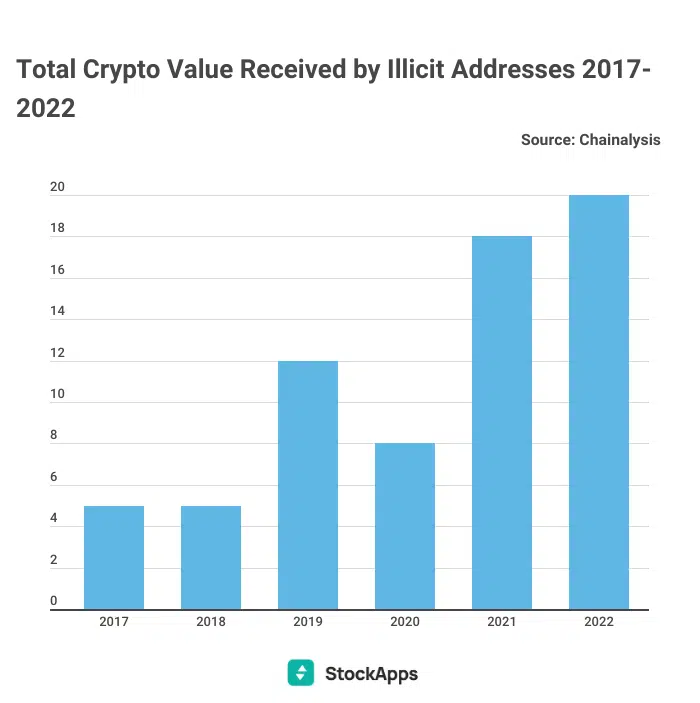Despite the effectiveness of government sanctions in certain instances, new evidence suggests that sanctioned entities are turning to the benefits of cryptocurrency to overcome imposed barriers.
Data from StockApps indicates that 44 per cent of 2022’s cryptocurrency illicit transactions came from sanctioned entities.
Some might turn to cryptocurrency as an opportune investment strategy, while others shy away from the level of risk and volatility associated with the industry. However, a larger and larger crowd is now concerningly viewing cryptocurrency as a means to circumvent government sanctions.
Government impose sanctions to chastise entities that are behaving badly. For example, the United States has sanctions against Iran, North Korea and Russia. These sanctions prevent financial institutions from doing business with entities in those countries.
Hydra, a Russian dark web marketplace where criminals can purchase and sell items and services, was one of the sanctioned companies. Others include sources like Blender.io tumbler and the North Korean hacking group Lazarus.
However, cryptocurrencies are not subject to these same restrictions and therefore can be used to send and receive money from anyone in the world. This makes cryptocurrency the perfect tool for overcoming such sanctions; a reality that the StockApps analysis makes clear.
Of the various methods used to overcome sanctions, decentralised exchanges remain highly favourable. This is because such exchanges exist beyond the regulations imposed on traditional financial institutions, meaning trade with sanctioned countries remains unaffected.
Besides, using the peer-to-peer network can make it easier for illicit traders to rely on cryptocurrency. These networks allow users to send and receive payments without revealing identities.
As the data indicates, these types of trades have increased in both value and volume over the course of the last five years.

The growing requirement for a regulatory reaction
As the cryptocurrency remains largely unregulated, despite recent efforts from regulators, some bad actors have been able to take advantage of investors, generating millions in losses in the process.
StockApps reinforces the need for new regulations in the cryptocurrency industry. Specifically, it targets investor protections and the expelling of illicit transactions for sanctioned entities.
For this reason, cryptocurrency exchanges should enforce know-your-customer (KYC) and anti-money laundering (AML) compliance.
Speaking on the data, StockApps financial analyst, Edith Reads, says, “Sanctioned entities are increasingly using crypto to hide their tracks and get away with crimes that would be impossible through traditional financial systems. This is a worrying trend, and governments must act fast to combat it.”




